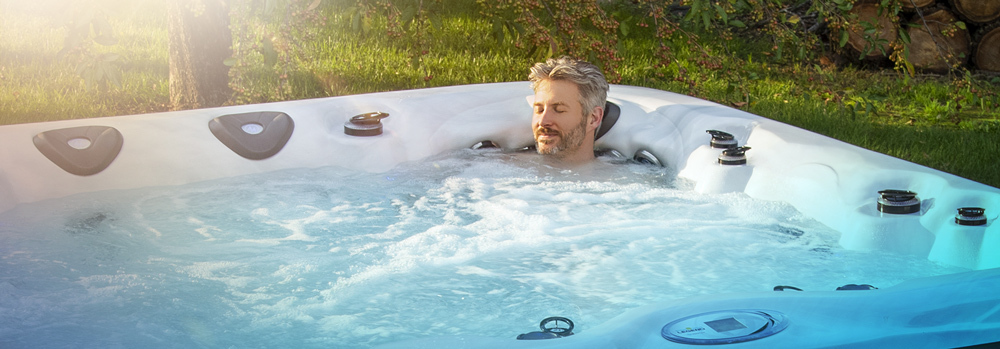

Hot Tub Health Benefits
Hot tub hydrotherapy provides a wide variety of health benefits*.
Regular soaks in a hot tub can:
- Reduce stress and lower anxiety
- Relieve pain, including pain associated with chronic conditions
- Increase mobility
- Improve sleep
With a hot tub, you can improve your quality of life and put your wellness goals within reach.
*Always speak with your doctor before beginning any new health routine.Reduced Stress and Anxiety
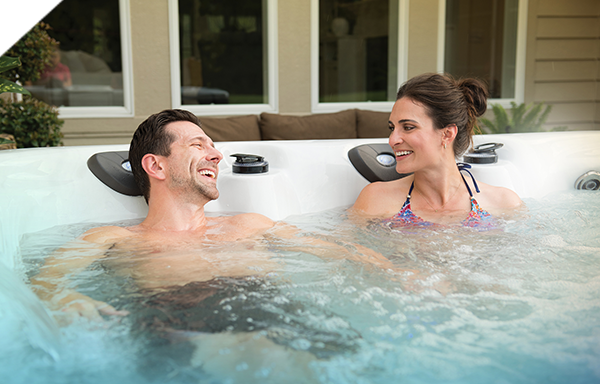
Research shows that soaking in a hot tub can significantly reduce stress and relaxation.
According to the National Swimming Pool Foundation, "with 25 minutes of soaking in a 102-degree hot tub, the autonomic nervous system alters during warm water immersion, producing changes that are parallel to those seen during relaxation and accompanying a reduction in anxiety."
Promoting deeper relaxation:
- The combination of hot water and massage jets reduces muscle tension and eases physical stress.
- The hot water increases body temperature.
- The temperature of the water causes blood vessels to dilate, increases circulation, and lowers blood pressure.
Pain Relief
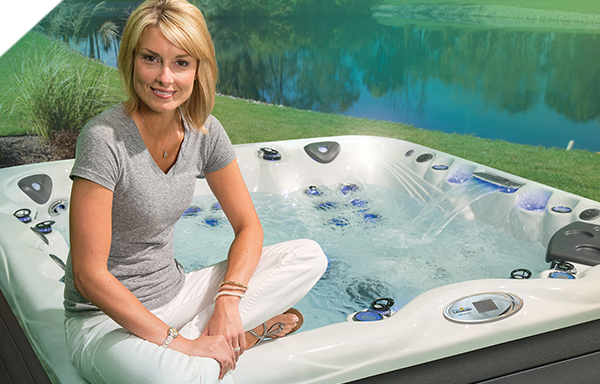
Among the benefits of soaking in a hot tub is relief from chronic pain, which is a growing health problem. According to the Centers for Disease Control, 50 million American adults suffer from chronic pain, and it is "one of the most common reasons adults seek medical care."
Treatment for chronic pain can often be focused on managing symptoms and improving quality of life. A hot tub can complement traditional therapies to improve pain from chronic conditions, such as arthritis and sciatica.
Hot water can reduce inflammation and increase blood flow to the muscles. In addition, the water temperature can prevent painful muscle contractions. The joints will also feel less pressure, thanks to water's buoyancy.
But hydrotherapy is more than water and temperature. The adjustable massage jets target the muscles and release built-up tension so you can realize the benefits of a hot tub.
The therapy of a hot tub can benefit people with these conditions:
- Arthritis
- Sciatica
- Fibromyalgia
- Chronic lower back pain
- Chronic headaches and migraines
- Sports injuries
Increased Mobility
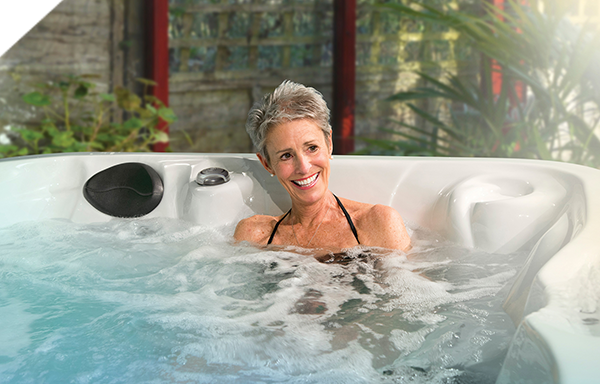
The temperature and buoyancy of the water can help you improve strength and flexibility. Stretching and exercise in a hot tub can also better mobility without the risk of injury. Athletes who are rehabilitating a sports injury can realize the benefits of a hot tub, safely moving stiff joints.
Improved Sleep
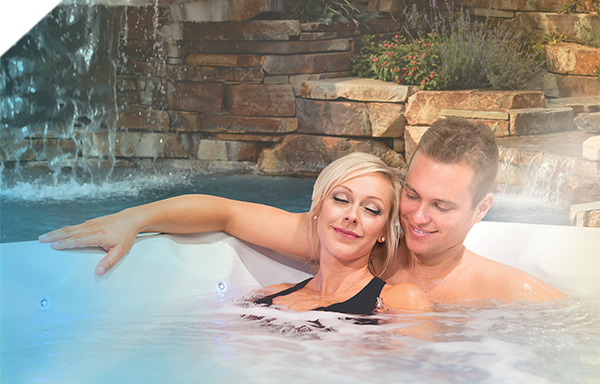
In addition to fostering greater relaxation, one amazing benefit to using a hot tub is getting a better night's rest.
According to the American Psychological Association, "even slight sleep deprivation or poor sleep can affect memory, judgment and mood." Chronic sleep deprivation can negatively affect health, contributing to obesity and high blood pressure.
The National Sleep Foundation recommends that adults get seven to nine hours of sleep a night. About 35 percent of American adults, though, don't get the suggested seven hours and the American average is 6.8 hours of sleep a night.
How can a hot tub help you get better sleep?
- Reduces stress
- Reduces pain
- Changes body temperature
Soaking in a hot tub in the evening will lead to a body temperature change, serving as a sleep aid and a natural reminder that it is time for bed. Taking time for yourself in the evening, including 20 minutes to unwind in the hot tub, will have a positive impact on your sleep.